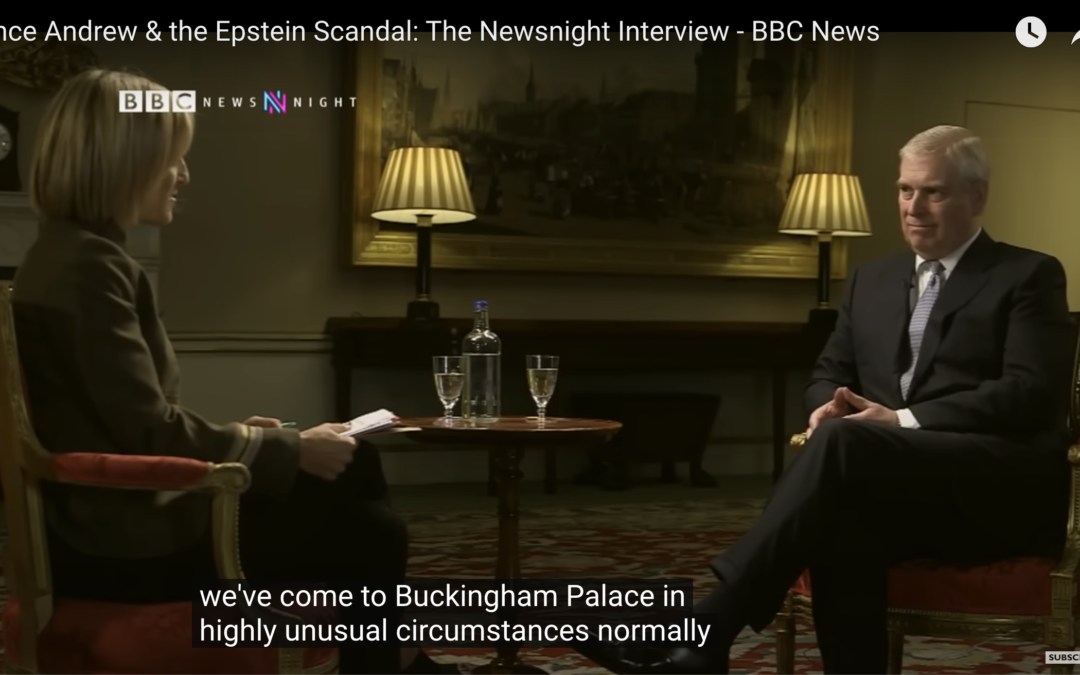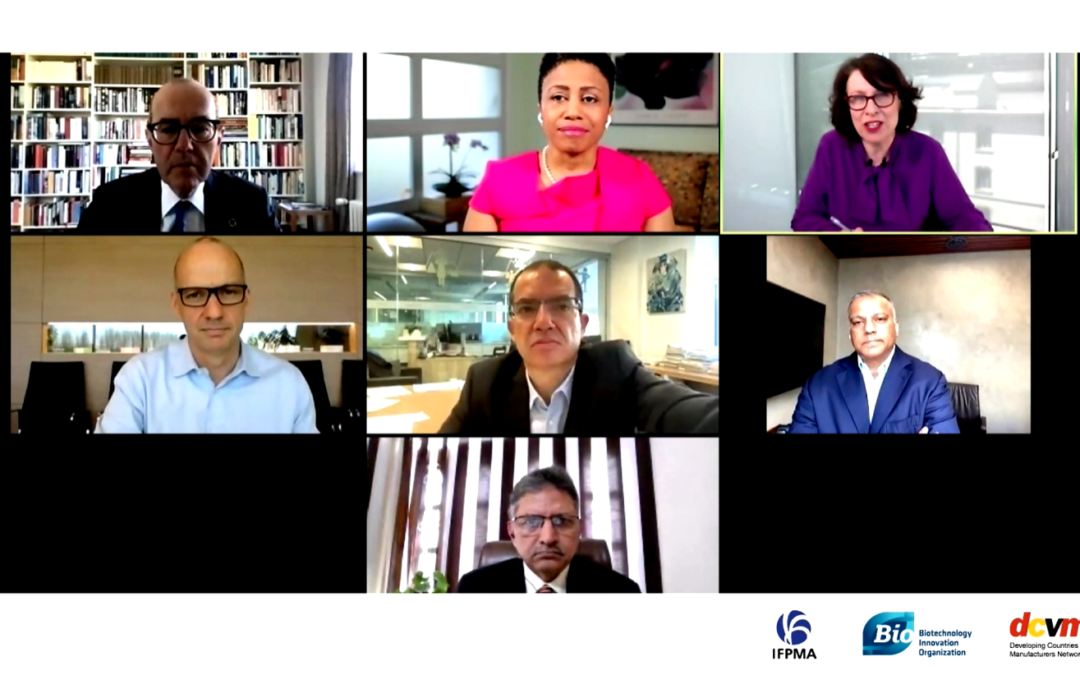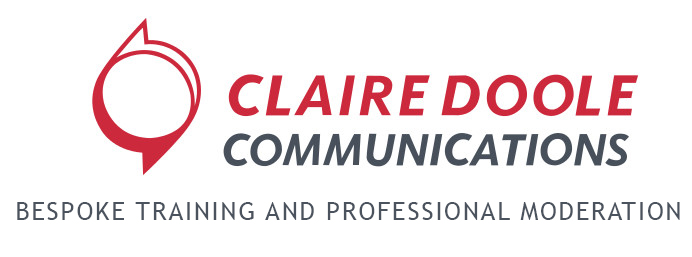
by Claire Doole | Jul 7, 2024 | Blog, Media training
Did you watch Emily Maitlis’s interview with Prince Andrew about his relationship with the convicted pedophile Jeffrey Epstein? If not, did you see the wonderful film that has just come out – Scoop – about that interview?
Emily excels as an interviewer. She enters each conversation well prepared, focused and with a clear idea of how she wants to steer the conversation. Her strength also lies in her ability to listen to deepen her understanding and ask probing follow-up questions. This blend of preparation and flexibility is one of the reasons her interviews are so compelling.
You may not get to interview a member of the British royal family – few get that opportunity. However, her approach and techniques are worth observing, if you are asked to conduct an on-camera interview for your organization or company.
Over the past few months, I have trained a number of people on how to interview their CEOs, members of senior management teams or technical experts for videos to be posted on the company intranet, website or social media platforms.
My top five tips are:
• Know your purpose. What do you want to hear from your
interviewee that is of interest to your audience?
• Have a clear flow in mind. You need to have a logical
structure so it is easier for the audience to follow.
• Be curious. You know where you want to go, but you have to
listen actively so that you can clarify if something is unclear or
unexpected or probe with a follow-up question.
• Practice reverse engineering. You may have submitted your
questions to the interviewee ahead of time, but you need to sound
and appear to the audience as if this is the first time you have asked the
question. Audiences check out when they feel an interview is scripted.
• Ask questions that elicit an emotional response. You will
find that questions that ask how the interviewee feels about something or
about what he/she has seen are the ones that are usually the most memorable.
These are often best asked spontaneously so that the response is natural and
heartfelt. You can always decide later whether to use them in the final edit.
Question techniques
Broadcast journalists are great interviewers as they interview day in and day out either for soundbites for a report they are doing or live on-air. Live interviews are the most challenging as you have no opportunity to retake the question and have to quickly link between the answer you receive and your next question to ensure a seamless conversation.
Here are some examples of what to do or not do from two broadcast journalists, who were interviewing Philippe Lazarini, the Commissioner General of UNRWA.
1. Don’t ask long open questions or multiple questions as the answer will be very long.
https://vimeo.com/manage/videos/975311481/privacy
You can see that the question was almost one minute and elicited a two-minute 30 answer!
2. Do intervene for clarification, for example, if the interviewee uses an acronym, jargon, or assumes too much knowledge.
https://vimeo.com/manage/videos/975322903/privacy
You are asking the questions your audience wants asked so put yourself in their shoes.
3. Do ask a question that is personal and emotional, such as this one about whether it is hard to separate your feelings from your job.
https://vimeo.com/manage/videos/975320466/privacy
This answer is often the one that is most memorable/quotable.
4. Do have a strong final question, as you want to leave the audience with something memorable. If you flag up this as the final question, you help the interviewee focus on giving a great response, as Philippe Lazzarini does here.
https://vimeo.com/manage/videos/975326437/privacy
Journalists are looking for strong newsworthy answers, although sometimes it can be more important to ask a key question the public wants answered even if it doesn’t elicit a great answer. However, when you are interviewing for PR purposes, your job is to get the best possible answer from the interviewee so they come across as credible, knowledgeable and empathetic.
A former BBC journalist in London, Brussels, Berlin and Geneva, Claire can help you become a great interviewer if asked to conduct an on-camera interview or to ask questions off camera for your corporate video. Contact her at claire@doolecommunications.com

by Claire Doole | May 26, 2024 | Blog, Media training
People often ask me who excels at talking to the media. My answer is Philippe Lazzarini, Commissioner General of UNRWA – the UN Palestinian Relief Agency that employs 13,000 people in the Gaza Strip, and runs schools and social services.
Lazzarini has one of the most challenging jobs in the world, made even more difficult since the tragic events of October 7th. Currently, he is banned by Israel from visiting Gaza, and his agency is not allowed to deliver much-needed food to the North of the strip where famine looms. Israel has also accused a dozen UNRWA staff of involvement in the Hamas attacks on Israel – allegations that remain unsubstantiated. 189 of his staff have so far lost their lives in the conflict.
Yet he remains cool, calm and collected when questioned by the media about those allegations, the effectiveness of the relief operations or the plight of the Palestinians.
I have analyzed some of the interviews he has done with major international broadcasters, Al Jazeera, Sky News and BBC, over the past six months, with a view to illustrating some of the techniques he uses that make him such an excellent interviewee.
1. Rebuts unfounded premises/charges – In this Hard Talk interview on the BBC in November last year, he held firm against Stephen Sackur’s renowned inquisitorial questioning. ‘
2. Avoids words that are loaded for you – In this interview with James Bayes from Al Jazeera in December, he avoids the trap of blaming the Israeli army for war crimes but reframes the question and makes the point about the need to respect international humanitarian law.
3. Keeps to his area of expertise
In this interview with Yalda Hakim of Sky News in March, he is asked why there is no political will for a ceasefire. He does not get dragged into answering on behalf of Israel or Hamas but voices his concern about food being used as a weapon of war.
4. Redirects questions to where he wants to go
James Bayes asks him if he is angry about the plight of the Palestinians, to which he replies that he is angry about the indifference of the international community and makes the broader point about a loss of humanity.
5. Talks about the impact on people
In this interview with Al Jazeera, he focuses not on UNRWA but on the people of Gaza, relating stories of their plight and what they told him when he was able to visit them.
6. Keeps on message throughout
Throughout all these interviews with BBC, Sky News and Al Jazeera, he takes control by staying on message and delivering it clearly and compellingly.
At the end of his interview on Hard Talk, he is asked whether the Israeli offensive could lead to the mass displacement of Palestinians from their homes – similar to the Nakba of 1948. Have a listen to his answer.
Unfortunately, his fears in that interview appear to be proving correct, with more than 1.9 million Gazans currently displaced, and the offensive on the city of Rafah underway.
In this type of sit-down interview done by star presenters, you have longer to get your message across than in a short news interview. However, all of the techniques mentioned above as well as the many more I share in my coaching and media training workshops are effective and can help you become a great media communicator – just like the head of UNRWA Philippe Lazzarini
In May last year I trained the UNRWA senior management team in how to effectively talk to the media.
If you would like to be coached or attend a media workshop online or in-person, contact me for a discovery call. As a former UN, IFRC and WWF International spokeswoman and BBC correspondent, I not only give you the authentic interview experience but also advise on how to get your message across.

by Claire Doole | Apr 25, 2021 | Blog, Media training
Organising a virtual press briefing is to coin the Thai-English phrase – “same same but different.
The basics are the same. You need to have news, which is impactful, timely and ideally topical. It may seem obvious, but too often press briefings are organised solely to “educate” the media about an issue. I can’t tell you how many I left as a BBC Foreign Correspondent without a story to broadcast!
But there are many differences; while virtual briefings have many advantages notably cost, convenience, geographic reach and you could argue carbon footprint, as with all digital events they need to better prepared and moderated.
For the past year I have been moderating virtual media briefings for the International Federation of Pharmaceutical Manufacturers Associations on COVID 19 – last week was my 6th – and also advising companies and organisations on how to run and speak at them.
Preparing a virtual press briefing
Based on my experience on both sides of the fence as a moderator/media consultant/trainer and former journalist, here are four key questions you should ask yourself:
Hybrid or virtual? – Hybrid where the moderator and a key speaker(s) are together in a room has the advantage that you don’t lose your speakers due to technical glitches. However, you need audiovisual and logistical support. At the UN Palais in Geneva they also have some journalists in the room but as a moderator you need to make sure you don’t prioritise those in the room over those joining virtually.
Who do you invite? You can invite everyone on your media list or those outlets that are more strategically important for you. Make sure though that the links you send out are not shared as you don’t want to find yourself answering questions from government, corporate or NGO representatives. A press briefing as the name suggests must just be for the press!
Questions in vision or only in writing? If you only take pre-submitted written questions from journalists, this gives you advanced insight and allows you to filter and collate them for the moderator. This method also ensures a broad range of outlets and topics are covered. The drawback is that while it ensures you retain control; it can be frustrating for the journalist whose question is not selected or who does not get to ask a follow-up question.
If you take questions live, you will be in the dark about which questions will be asked with the risk you get one that is off topic if the moderator does not intervene.
Heads up if journalists feel that a speaker has not fully answered a question, you will see that they start to work like a pack asking follow-up questions. It is normally the follow-up questions that can be the most challenging for speakers to answer.
How vital is a moderator? The moderator’s role and responsibilities cannot be overstated. He or she is not just a director of traffic, the moderator must clearly assign questions and repeat them for the benefit of the speakers and audience. This is extremely important particularly if the question is poorly worded or the journalist is speaking in a foreign language with a heavy accent.
Virtual and increasingly hybrid press briefings – just like events – are likely to be with us in the foreseeable future. Make sure yours are well prepared and moderated and you have the opportunity to broaden and deepen your media coverage.



